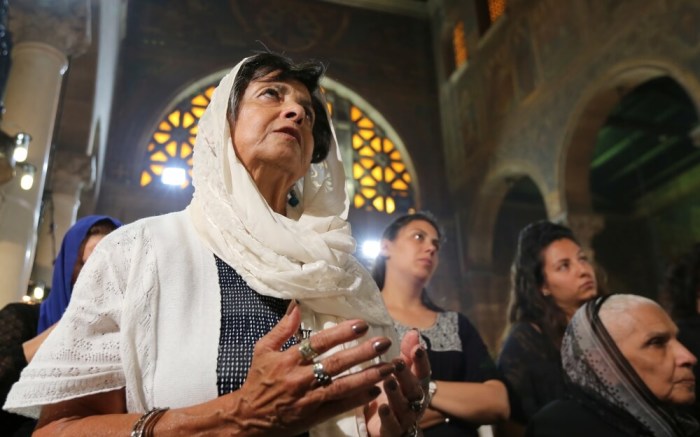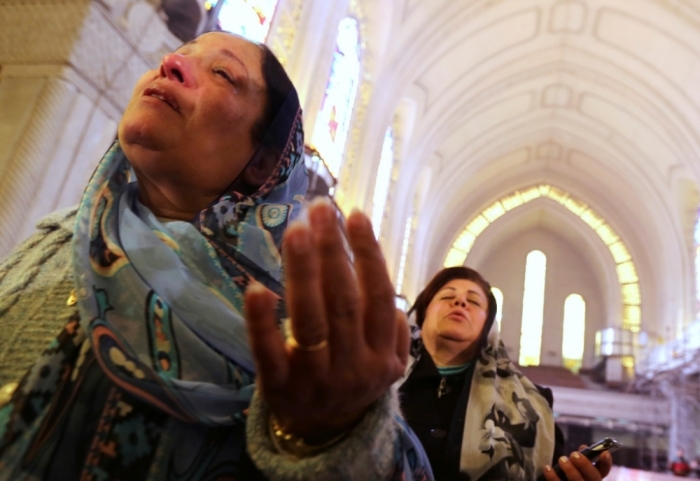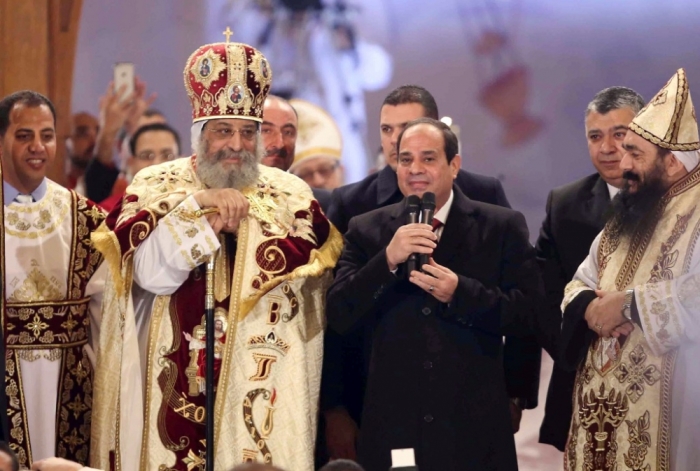Egypt's Christians Unsure if New Law Relaxing Church Renovation but Tightening Construction Is Good

Christians in Egypt are split on whether to support a new law that no longer requires Christian churches to get approval from the country's president just to make renovations but also puts in place unprecedented regulations that govern the construction of churches.
On Tuesday, lawmakers in Egypt passed the nation's first-ever law providing specific rules and regulations on the construction of Christian churches, which critics argue gives too much power to local governments to deny church construction for the sake of conservative Muslim objection.
Although the law is being criticized by Christian activists and lawmakers, the law has actually been approved by the Coptic Orthodox Church, even after the church body rejected a draft of the bill on Aug. 18. Additionally, the Associated Press reports that a majority of Egypt's 36 Christian lawmakers also largely favored the bill, as did two-thirds of the Egyptian parliament.
Father Sergius, a leading official in the Coptic Church, called the law "historic."
"The church and the government reached a reconciliatory agreement," AP quoted Sergius as saying. "Thank God we have this law now."
Additionally, Abdel-Masseh Basit, the head of the Coptic Church's Bible Studies Center, explained that the church felt somewhat inclined to accept the law as part of ongoing negotiations.
"We are no longer talking about a constitutional right but about negotiations," AP quoted Basit as explaining. "The church couldn't reject the law because it will put the state in a bad spot."
Other Christians are not so happy with the law, saying that threats of ultra-conservative Muslim retaliation to church construction will lead many governments to ban church construction.
"What if Salafis protest against the construction of a church, would this prompt the governor to turn down the request, for fear of national security?" asked Christian activist Nader Shukry.
William Stark, a regional manager with the United States-based Christian persecution watchdog International Christian Concern, told The Christian Post on Thursday that Christians are split over the law because the law has both positive and negative aspects pertaining to the religious freedom of Christians, who make up about 10 percent of the Egyptian population.

"On the positive side, the Christian community is happy that the government has at least been able to pass a new law regarding church construction," Stark explained in an email. "Before this law, Christians had to get presidential approval to build new churches or even renovate old churches. This meant that fixing an old bathroom in a church in Egypt required permission from the country's highest office."
"Unfortunately, this positive change is outweighed by the restrictions this new law imposes on Christians seeking to build churches in Egypt, which is why Egyptian Christians are having a negative reaction to the passage of the new law," he added.
The law requires that the size of churches being built be based on the size the local Christian population in that particular area. However, census data in Egypt is kept as a state secret and only available to government officials.
"This means that the government can restrict the size of the church unilaterally based on census data it keeps secret," Stark stressed. "In extreme cases, the government could say Christians are not allowed to build a church because there is not enough Christians in a particular area."

Additionally, Stark stated that the law allows the governments to take public order and safety into consideration when it decides whether or not to approve church construction.
"This will effectively allow local governments to deny the construction of a church if local Muslims disagree with the construction," Stark wrote. "In many cases, the mere rumor of a church being built in Egypt is enough to incite a mob. Over the summer, this led to several Christian neighborhoods across Egypt being attacked by enraged Muslim mobs."
Stark also said that the law gives final say over church construction to security forces.
"This means that security forces can approve or disapprove a church's construction for whatever reason leaving Christians without a predictable and fair process to build new places of worship," Start argued.
Stark asserted that new law "maintains the restrictions of the old law," but simply "changes the government office where Christians will likely be denied permission to construct a church."
Youssef Sedhom, the chief editor of the Coptic news outlet Watani, told AP that the law indicates that the state wants to keep having a "full mandate and monopoly" over Egyptian Christians and their churches.
Egypt ranks as the 22nd worst country in the world when it comes to Christian persecution, according to Open Doors USA's World Watch List.
"President [Abdel Fattah] el-Sisi's authoritarian style of government has to some extent restored the rule of law in Egypt, but also implies a stricter compliance with the relatively restrictive legislation related to religious affairs," Open Doors stated in a fact page on Egyptian persecution. "This is not in the advantage of the country's Christian population."




























